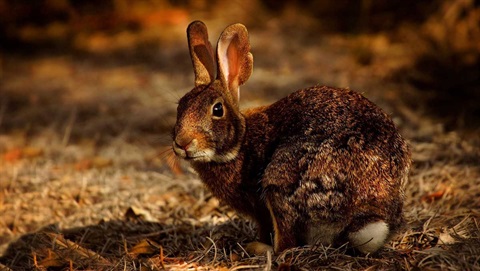Rabbit owners urged to ensure calicivirus vaccinations are up to date
19 August 2019

Wild rabbit control to take place across the Tweed
Rabbit owners in the Tweed are being advised to make sure that their pet rabbits are vaccinated against calicivirus, ahead of a release of the virus that may occur over the coming months.
Calicivirus is present in the environment at all times and has the potential to affect pet rabbits at any time, regardless of any planned release, so pet rabbit owners need to ensure they take every precaution to minimise the risk to their pet rabbits.
Facts about rabbits:
• Rabbits are estimated to cause over $200 million in damage to Australian agriculture every year. This figure does not take into account the damage to infrastructure and the environment
• Rabbits are recognised as a potential threat to at least 304 native threatened species nationallly
• Across the Tweed, rabbits compete with livestock and wildlife for food and water
• Residents report that rabbits are damaging gardens, undermining house footings and destroying house termite barriers
• Wild rabbits in the Tweed include the European wild rabbit and escaped or free-living domestic rabbits.
Council’s Program Leader Pest Management Wildlife Protection, Pamela Gray said less than one rabbit per hectare is enough to stop the growth of some native species and negatively affect biodiversity, leading to further loss of native plant and animal species.
“As such, wild rabbits are considered a biosecurity risk, and measures must be put in place to control their numbers,” Ms Gray said.
As a property manager in NSW, Tweed Shire Council has a general biosecurity duty (under the NSW Biosecurity Act 2015) to manage rabbits on land under its management.
“One of the measures that will be used in the Tweed to control rabbits is a release of RHDV1 K5, a calicivirus strain. Calcivirus was successful in reducing numbers of wild rabbits on the Tweed Coast in late 2017,” she said.
“The new strain of calicivirus was first released nationally as a biological control in February 2017 and may be released in the Tweed in September.
“Council strongly urges residents with pet rabbits to make sure their vaccinations are up to date to reduce the chances of their rabbit catching the virus.”
A researcher on calicivirus vaccination, Victorian Acting Chief Veterinary Officer Dr Cameron Bell, has advised the current vaccine was expected to provide good protection against all strains of the RHDV1 virus, including the K5 strain. The recommended vaccination frequency is now every six months, instead of every 12 months.
“Owners can also protect their pet rabbits against the virus by ensuring their pets do not come into contact with wild rabbits or eat grass that has been grazed on by wild rabbits,” Ms Gray said.
“The virus can also be transmitted by fleas, mosquitoes and flies, so try to ensure hutches are insect-proof.”
For more information visit www.tweed.nsw.gov.au/Rabbits
Downloads
Photo 1(JPG, 119KB)
Caption: Protect your pet rabbit now so it is not affected by the possible release of calicivirus in the Tweed, aimed at controlling wild rabbits.